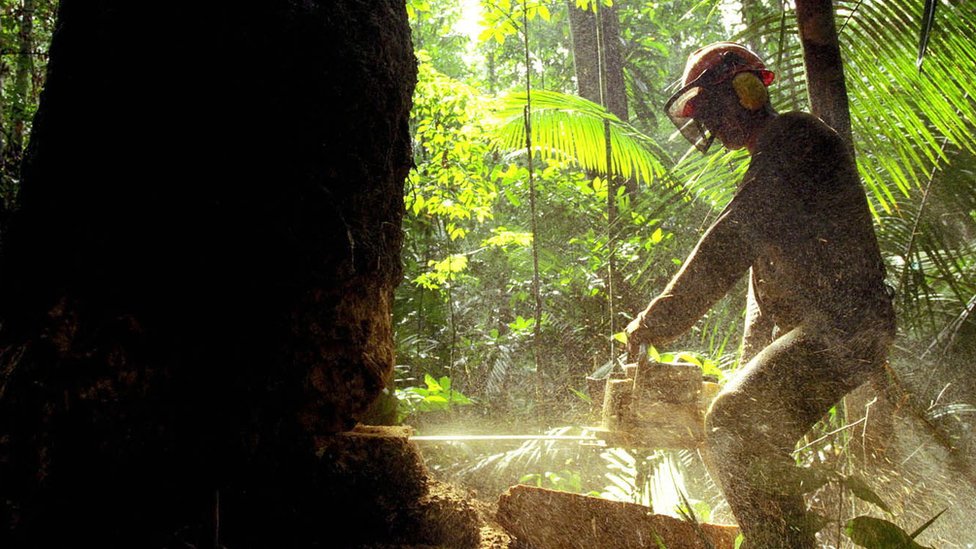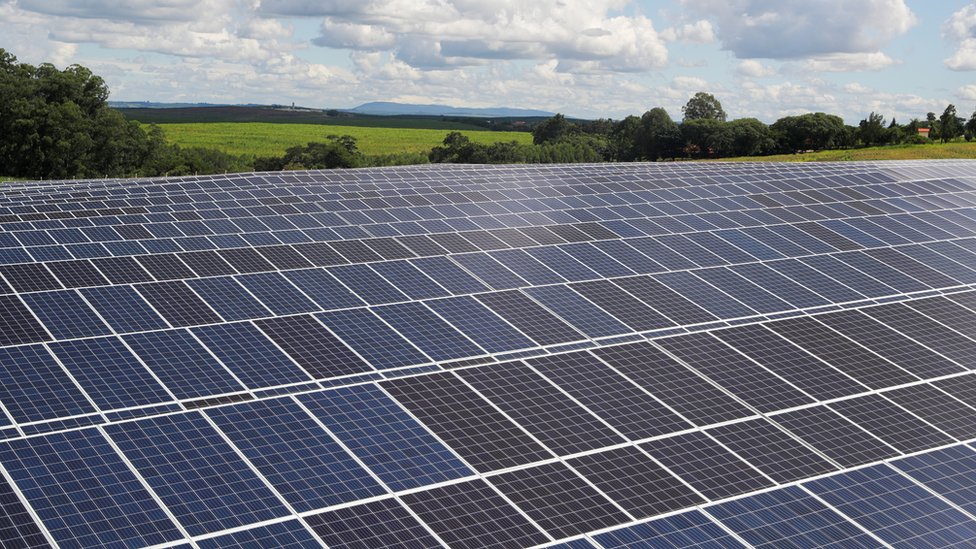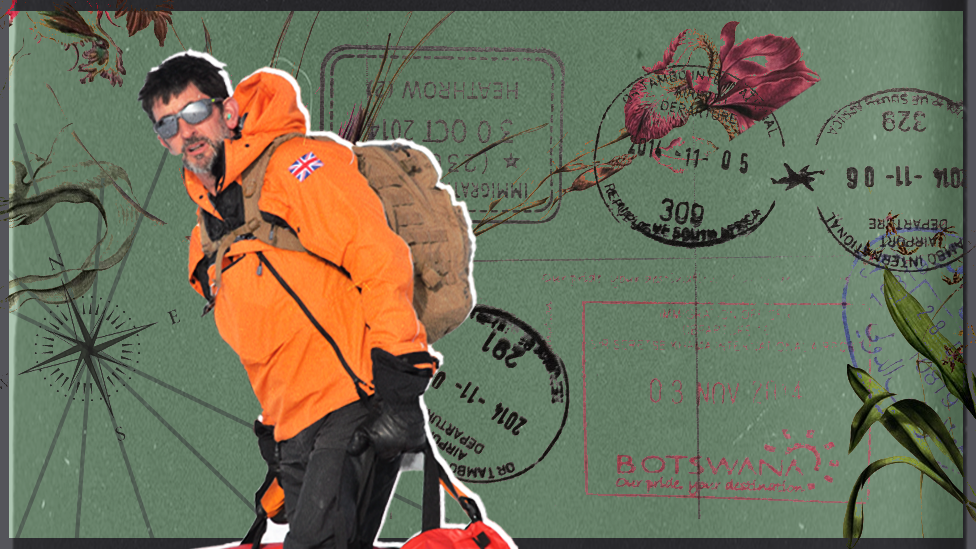Humans waging 'suicidal war' on nature - UN chief Antonio Guterres
Humanity is waging what he will describe as a "suicidal" war on the natural world.
"Nature always strikes back, and is doing so with gathering force and fury," he will tell a BBC special event on the environment.
Mr Guterres wants to put tackling climate change at the heart of the UN's global mission.
In a speech entitled State of the Planet, he will announce that its "central objective" next year will be to build a global coalition around the need to reduce emissions to net zero.
Net zero refers to cutting greenhouse gas emissions as far as possible and balancing any further releases by removing an equivalent amount from the atmosphere.
Mr Guterres will say that every country, city, financial institution and company "should adopt plans for a transition to net zero emissions by 2050". In his view, they will also need to take decisive action now to put themselves on the path towards achieving this vision.
The objective, says the UN secretary general, will be to cut global emissions by 45% by 2030 compared with 2010 levels.
Here's what Mr Guterres will demand the nations of the world do:
- Put a price on carbon
- Phase out fossil fuel finance and end fossil fuel subsidies
- Shift the tax burden from income to carbon, and from tax payers to polluters
- Integrate the goal of carbon neutrality (a similar concept to net zero) into all economic and fiscal policies and decisions
- Help those around the world who are already facing the dire impacts of climate change

Apocalyptic fires and floods
It is an ambitious agenda, as Mr Guterres will acknowledge, but he will say radical action is needed now.
"The science is clear," Mr Guterres will tell the BBC, "unless the world cuts fossil fuel production by 6% every year between now and 2030, things will get worse. Much worse."
Climate policies have yet to rise to the challenge, the UN chief will say, adding that "without concerted action, we may be headed for a catastrophic three to five-degree temperature rise this century".
The impact is already being felt around the world.
"Apocalyptic fires and floods, cyclones and hurricanes are the new normal," he will warn.
"Biodiversity is collapsing. Deserts are spreading. Oceans are choking with plastic waste."
Moment of truth
Mr Guterres will say the nations of the world must bring ambitious commitments to cut emissions to the international climate conference the UK and Italy are hosting in Glasgow in November next year.
As well as pressing for action on the climate crisis, he will urge nations to tackle the extinction crisis that is destroying biodiversity and to step up efforts to reduce pollution.
We face, he will say, a "moment of truth".
But he does discern some glimmers of hope.

More from Our Planet Now:

He will acknowledge that the European Union, the US, China, Japan, South Korea and more than 110 other countries have committed to become carbon neutral by the middle of this century.
He will say he wants to see this momentum turned into a movement.
Technology will help us to reach these targets, Mr Guterres will say he believes.

"The coal business is going up in smoke," because it costs more to run most of today's coal plants than it does to build new renewable plants from scratch, he will tell the BBC.
"We must forge a safer, more sustainable and equitable path", the UN chief will conclude.
He will say it is time for this war against the planet to end, adding: "We must declare a permanent ceasefire and reconcile with nature."
Follow Justin on Twitter.


I've travelled all over the world for the BBC and seen evidence of environmental damage and climate change everywhere. It's the biggest challenge humanity has ever faced. Tackling it means changing how we do virtually everything. We are right to be anxious and afraid at the prospect, but I reckon we should also see this as a thrilling story of exploration, and I'm delighted to have been given the chance of a ringside seat as chief environment correspondent.


December 02, 2020 at 06:05PM
https://www.bbc.co.uk/news/science-environment-55147647
Labels: BBC News

0 Comments:
Post a Comment
Subscribe to Post Comments [Atom]
<< Home